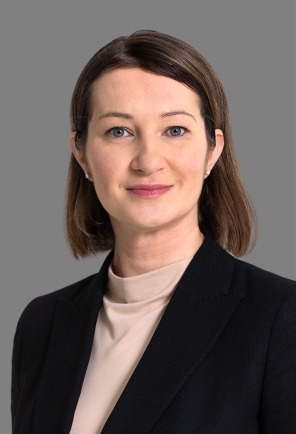German Tax Update – 20 June 2025
ECJ - C-645/23 - Hera Comm1 – ECJ Confirms Conditions for Additional Energy Charges and Reaffirms Extended “Reemtsma” Refund Rights
The European Court of Justice (ECJ) has reiterated that EU Member States may only levy extra charges on electricity in strict circumstances and has confirmed – rather than introduced – the broader refund principle previously established in decision in Gabel Industria Tessile and Canavesi from 20242.
Why does the case matter?
EU law harmonises excise duties on products such as electricity, fuel and alcohol. Member States may add “other indirect taxes” on top of these duties, but only if the levies are clearly defined, serve a specific non-budgetary purpose (for example, an environmental objective) and respect EU procedural safeguards.
In Hera Comm, the Court confirmed that where a national surcharge
- is calculated separately from the harmonised excise duty,
- funds different public bodies, and
- does not follow the same exemption rules,
it constitutes an “other indirect tax” and is unlawful unless it meets those EU conditions.
Facts of the case
An Italian electricity supplier had passed a surcharge—labelled as a supplement to the electricity excise duty—on to customers. The charge simply financed regional and local budgets. After its repeal, a customer demanded
repayment. Italian courts asked the ECJ whether such a levy could be contested under EU law and whether the customer could rely on EU rules to obtain a refund.
Key findings of the ECJ
1. Separate Indirect Tax Qualification
The ECJ confirmed that a surcharge on electricity may constitute a separate “other indirect tax” if:
- The proceeds are allocated to different public authorities than the main excise duty, and
- The levy is subject to different exemption or application rules.
The fact that a surcharge is calculated as a fraction or multiple of the existing excise rate does not preclude its qualification as a separate tax under EU law.
2. Requirement of a Specific Purpose
Under Article 1(2) of Directive 2008/118/EC, Member States may only impose such additional indirect taxes if they pursue a “specific purpose” beyond general fiscal needs. Budgetary objectives alone are not sufficient. In this case, the Italian surcharge was found to serve general local financing objectives, which the Court deemed insufficient to justify the levy under EU law.
3. Confirmation of the expansion of the Reemtsma Principle beyond VAT
Building on Gabel Industria Tessile (C-316/22), the ECJ confirms that, if a taxpayer cannot recover an unlawful levy from the supplier, national law must allow the claim directly against the State. The principle, first developed for VAT (Reemtsma3), now indisputably applies to excise-type taxes.
Who is affected?
- Businesses and consumers in Member States that have paid energy surcharges exceeding harmonised excise duties.
- Energy suppliers and utilities that have passed on such charges and may face refund claims.
- Tax authorities and local governments relying on similar levies for general budget support.
- Policymakers and legislators drafting future consumption-based taxes.
What should taxpayers do?
- Identify past and current surcharges on electricity or other energy products.
- Check each levy’s legal basis and policy purpose; charges lacking a clear, specific objective may be invalid.
- Evaluate refund potential and prepare evidence to support claims, either against suppliers or the State.
- Review contracts and invoicing practices to ensure compliance with EU rules and allocate risks appropriately.
- Monitor legislative responses; Member States may amend or abolish non-compliant surcharges.
A&M Tax Contact: Matthias Luther & Anastasia Buettner
German Federal Fiscal Court to Rule on VAT Treatment of Voluntary Payments for Free Online Content
By order of May 19, 20254 (V B 25/24), the German Federal Fiscal Court (BFH) granted revision against a decision by the Berlin-Brandenburg Tax Court5. The judgment by the BFH in this case could have a significant impact on free-of-charge content being shared online.
Background and Lower Court Decision
In the underlying case, the Berlin-Brandenburg Tax Court held that voluntary payments made by users to a website offering free content are not necessarily subject to VAT. The court found no direct link between the payment and a specific service, as users could access the content free of charge and chose voluntarily whether to contribute financially.
The operator had encouraged such contributions (e.g., through “support us” language), but this alone was not sufficient to establish a taxable transaction under EU VAT law.
BFH Grants Revision
Following an appeal by the tax authorities, the German Federal Fiscal Court (BFH) on May 19, 2025, admitted the case for full review, citing the need to clarify:
“whether payments … are directly linked to a specific service rendered by the content provider …”
The BFH order does not include a detailed statement of reasons but explicitly signals the need for guidance on the VAT classification of such business models.
Why This Case Is Relevant
- Potential precedent: The forthcoming ruling may provide clarity for a wide range of digital business models where users voluntarily support free online offerings—e.g., blogs, podcasts, platforms, and independent creators.
- Legal certainty: Whether a voluntary payment is treated as consideration for VAT purposes depends on a direct link between the payment and the service—a distinction that carries significant compliance and financial implications.
- Commercial importance: The case comes amid the growing popularity of “support models” (e.g., Patreon, donation buttons), where income streams depend on voluntary contributions rather than paywalls.
What Taxpayers Should Consider
Until the BFH issues its ruling, uncertainty remains for digital service providers and authorities alike. Businesses receiving voluntary payments should:
- Review their commercial and invoicing models
- Ensure transparency in user communication and terms
- Assess whether payments might be viewed as VAT-able consideration
We recommend monitoring the development of the case closely and preparing for either potential classification.
A&M Tax Contact: Matthias Luther
1ECJ, judgment dated 19 April 2025 – case C-645/23 – Hera Comm, ECLI:EU:C:2025:454, https://curia.europa.eu/juris/liste.jsf?language=en&td=ALL&num=C-645/23
2ECJ, judgment dated 11 April 2024 – case C-316/22 - Gabel Industria Tessile und Canavesi, EU:C:2024:301, https://curia.europa.eu/juris/document/document.jsf?text=&docid=284642&pageIndex=0&doclang=EN&mode=lst&dir=&occ=first&part=1&cid=42054
3ECJ, judgment dated 15 March 2007 – case C-35/05 – Reemtsma Cigarettenfabriken, ECLI:EU:C:2007:167, https://curia.europa.eu/juris/document/document.jsf?text=&docid=62165&pageIndex=0&doclang=EN&mode=lst&dir=&occ=first&part=1&cid=46435
4BFH, order dated 19 May 2025 – case V B 25/24, https://www.bundesfinanzhof.de/de/entscheidung/entscheidungen-online/detail/STRE202520173/
5Fiscal Court of Berlin-Brandenburg, judgment dated 25 April 2024, case 2 K 2085/21






